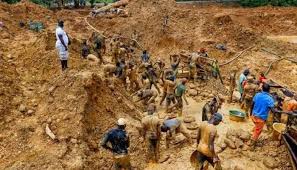Nigeria recently concluded a three-day conference marking the Nigerian Mining Week, aimed at attracting investments to diversify the economy and capitalise on the rising global demand for minerals. The event, attended by government officials, industry stakeholders, and international investors, underscored the country’s strategy to revitalise its mining sector and boost local mineral processing.

Strengthening Local Processing to Curb Exploitation
Speaking at the summit, Mary Ogbe, Permanent Secretary of the Ministry of Solid Minerals Development, highlighted the government’s resolve to ensure value addition before minerals leave the country.
“Previously, our minerals were extracted, processed abroad, and resold to us at higher prices,” Ogbe said. “Now, with new policies prioritising local processing, companies must add value to mined products before export. This shift is creating jobs and retaining more revenue within the country.”
Earlier this year, the government mandated that prospective investors set up local processing plants as a prerequisite for obtaining mining licences.
Challenges in Illegal Mining and Enforcement
Nigeria’s mining sector faces significant challenges, particularly illegal exploitation and exportation of resources. Despite the nation’s wealth in over 40 minerals, including gold, tin, and lithium—a critical component for batteries and electric vehicles—illegal mining activities have limited revenue generation.
To combat this, the government has introduced measures such as deploying 2,500 agents under the Mining Marshal Corps. This initiative has led to the arrest of over 300 illegal miners, including foreign nationals, in recent months.
Leveraging Mining to Boost the Economy
Authorities also announced plans to invest in advanced mining technologies, improve surveillance, and enforce existing laws. However, the sector’s contribution to the GDP remains modest, accounting for only 0.77% in 2023.
Economist Eze Onyekpere criticised the government’s efforts, stating, “Successive administrations have talked about diversifying into solid minerals, yet the returns remain minimal. The lack of serious commitment and the prevalence of illegal mining activities hinder the sector’s potential.”
A Vision for Sustainable Mining
The conference reinforced the government’s commitment to making Nigeria a competitive mining hub. Investments in infrastructure, data collection, and community engagement were highlighted as key to achieving sustainable development in the sector.
Despite challenges, the government remains optimistic that these reforms will not only boost economic growth but also position Nigeria as a leading destination for responsible and innovative mining practices.

